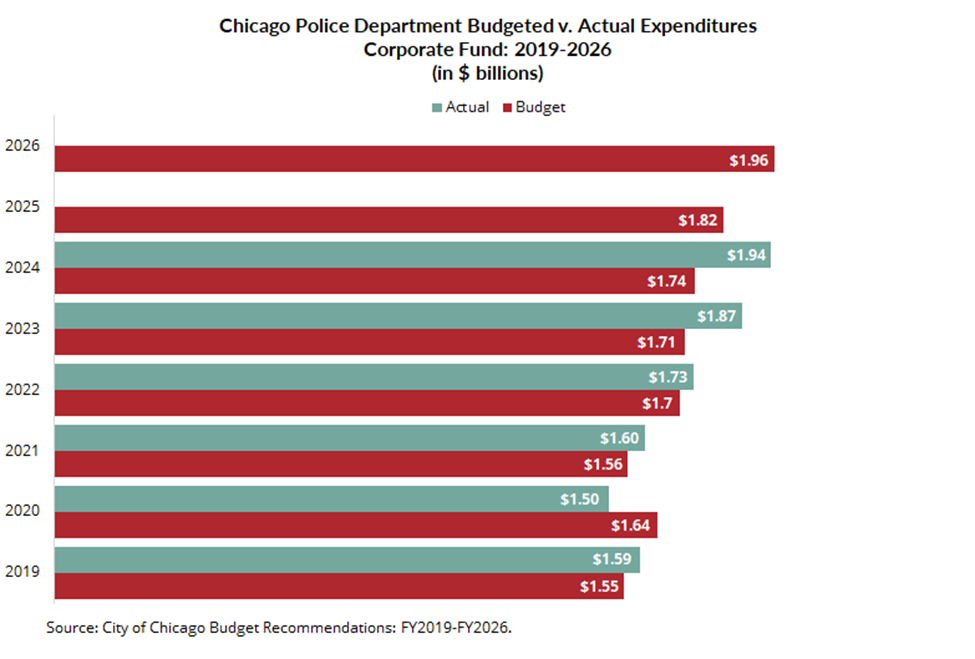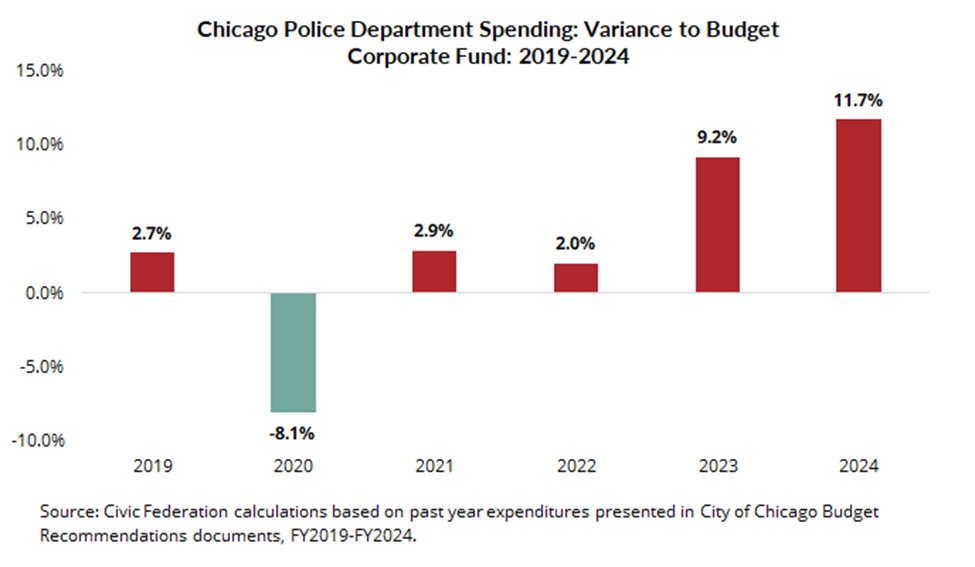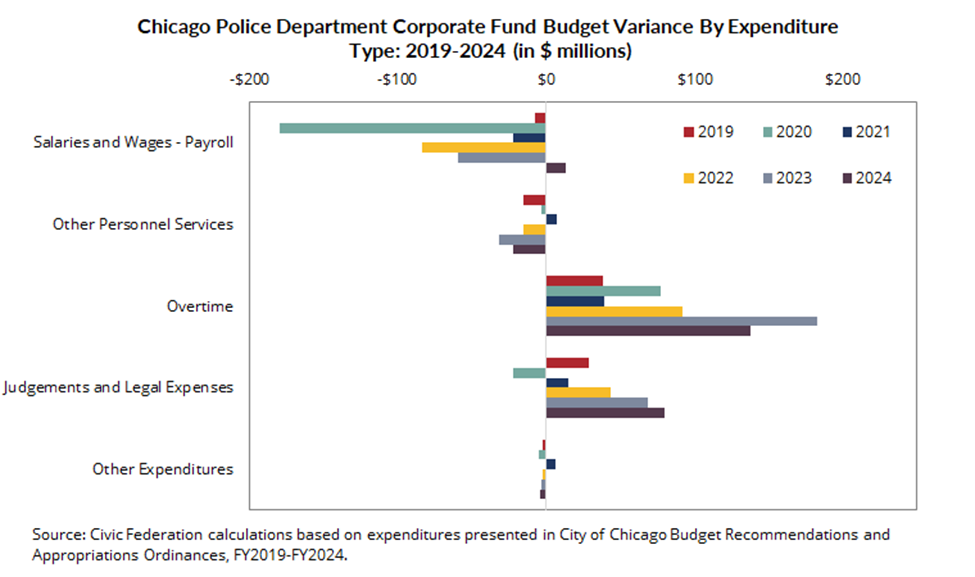November 04, 2025
by Grant McClintock
Most of the Chicago Police Department’s (CPD, or the ‘Department’) spending (96.5%) is budgeted through the City’s Corporate Fund, or general operating fund. This analysis provides a snapshot of CPD spending within the Corporate Fund since 2019.
CPD expenditures within the Corporate Fund are proposed to be $1.96 billion in FY2026. The Police Department’s budgeted spending has increased by 26.5% between the 2019 adopted budget and the 2026 proposed budget, at an average annualized growth rate of 3.36%, largely to keep pace with rising personnel costs. The only year during this period when the CPD budget did not see a year-over-year increase was 2021, when the City faced a $1.2 billion budget shortfall due to revenue losses during the COVID-19 pandemic and before receiving pandemic aid from the federal government. Mayor Lightfoot’s 2021 budget included an approximately $80 million reduction in funding from the prior year, most of which came from not filling vacant positions.
As the chart below illustrates, the amount the Department actually spends relative to the budget has exceeded the budget in almost every year between 2019 and 2024 (the most recent year for which actual expenditures are available), with the exception of 2020.

The next chart shows the variance in spending compared to budgeted amounts between 2019 and 2024. CPD’s spending within the Corporate Fund exceeded budget in five of these six years, although three of the years—2019, 2021, and 2022—had marginal variances under 3%. In more recent years, however, spending exceeded budgeted amounts significantly—by 9.2% in 2023 and 11.7% in 2024.

What drives such large variations between budgeted and actual expenditures? The next chart breaks down these variances by spending category. The greatest discrepancies came from employee salaries (payroll), overtime, and judgments and legal expenses. The City has consistently underspent on salaries while overspending on overtime and judgments and legal expenses for settlements over the past six years.

Salaries: With the exception of 2024, CPD has routinely spent less on payroll than was appropriated over the past six years. This is due to the high number of vacant positions within the Department. For the past several years, the Department has consistently had a vacancy rate in excess of 10%, with about 1,600 vacant positions in 2022 and increasing to 1,800 vacancies at the beginning of 2024. Based on data posted by the Chicago Inspector General as of November 3, 2025, CPD had 12,293 active employees. This comprises approximately 89% of the 13,807 FTE positions budgeted in FY2025, with about 1,500 vacant positions. The large underspend on salaries in 2020, the main driver of the below-budget spending shown in that year, can be attributed to the reduction in personnel during the pandemic.
Overtime: Conversely, overtime expenditures have exceeded budgeted amounts in each of the past six years, at times by staggering amounts. In the two years with the largest overspending, 2023 and 2024, the City budgeted for $100 million in police overtime but spent $282.8 million and $238.0 million, respectively. Such sustained overspending is indicative of unrealistic budgeting assumptions, inefficient use of personnel, or both. The FY2026 proposed budget allocates $200 million for police overtime. This is a positive step toward more realistic budgeting. However, hiring and retention remain a problem in the Police Department, and if these patterns continue, CPD will need to determine how to best distribute existing personnel while reducing overtime costs. The Department’s Workforce Allocation Study, purportedly nearing completion, will be critical to resolving some of these issues.
Legal Settlements: With the exception of 2020, the Police Department also overspent on judgments and legal expenses over the past six years, and in increasing amounts in recent years. In 2023 and 2024, the two most recent years of data available, CPD spent $150.3 million and $162.2 million on settlements – approximately double the budgeted $82.6 million for each year. These expenses were historically budgeted outside of the CPD budget and too often relied on the bad financial practice of borrowing to cover legal settlements. However, this practice was reversed under the Lightfoot administration, which also shifted CPD’s legal expenses to the Department’s budget to provide a more accurate accounting of where judgment and settlement expenditures are incurred. Even so, the chronic overspending indicates that budgeted amounts remain insufficient to cover the cost, as evidenced by the City’s intention to borrow at least $100 million to cover settlements in the FY2026 budget. This pattern necessitates that the City and CPD find ways to integrate realistic cost estimates into the Department’s operating budget and rein in future costs through compliance with the federal Consent Decree and improving risk management to reduce liabilities.
